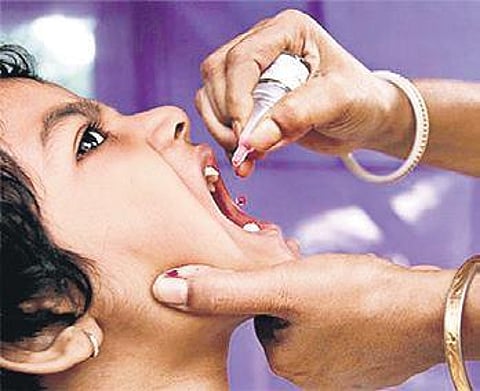

NEW DELHI: The health and family welfare department under the Delhi government will begin the first phase of its yearly Pulse Polio Immunisation Programme on January 19, 2020. In 2019, immunisation programmes were held in three phases in the months of March, June and September. More than 8,200 booths were set up and over 9,400 teams (each team comprising of 2 members) were deployed for carrying out door-to-door vaccination drive, during each round to immunise all children under five years of age.
More than 46 lakh household on an average are visited during each round to cover all eligible children. As per the government, around 22 lakh children are immunised in each phase of the Pulse Polio Immunisation Programme. To isolate wild polio virus, the state government has initiated environmental sewage sampling since 2010.
Initially started at 5 sewage sites for identifying the virus, these sites were catering to the sewage predominantly from migratory communities. Now the number of sites for taking sewage samples has been increased from five to seven. Polio or poliomyelitis is a highly contagious viral illness caused by the poliovirus which can spread from person to person through contact with the faeces of an infected person. Sewage samples had shown both types of wild P1 and P3 polio virus till August 2010.
After August 2010, sewage samples have not shown any wild polio virus in the national capital’s environment. The government has also adopted another measure — Acute Flaccid Paralysis (AFP) Surveillance — which is for monitoring the progress of polio eradication and detecting potential polio virus infection. AFP reporting sites have also increased from 184 in 2010 to 607 in 2018. In Delhi, four polio cases were detected in the year 2009. Since then, no case has been registered.
Fight against Polio
The government has adopted Acute Flaccid Paralysis (AFP) Surveillance which is a process to monitor the progress of polio eradication and detecting potential poliovirus infection. AFP reporting sites have also increased from 184 in 2010 to 607 in 2018.